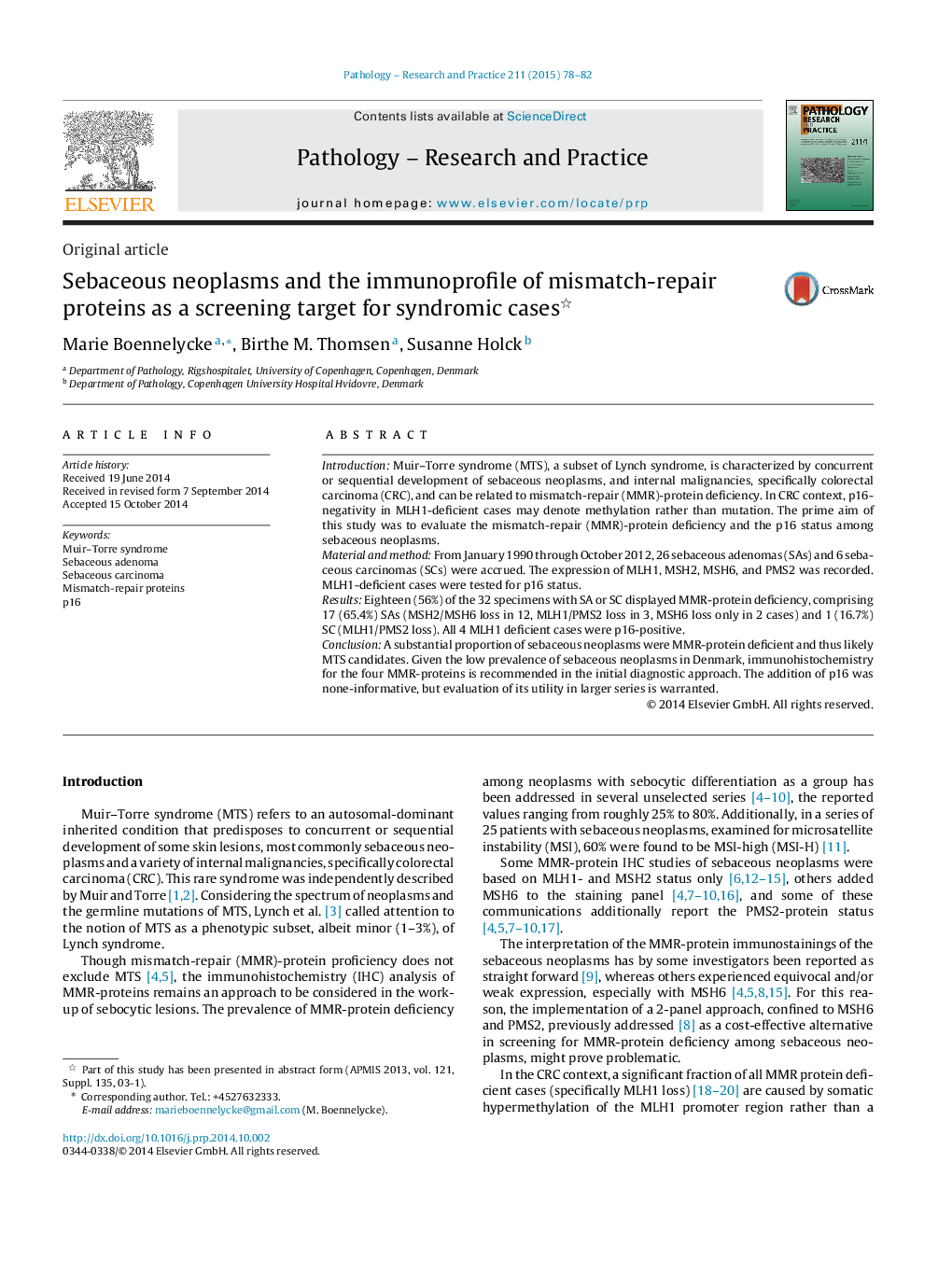| کد مقاله | کد نشریه | سال انتشار | مقاله انگلیسی | نسخه تمام متن |
|---|---|---|---|---|
| 2155167 | 1090385 | 2015 | 5 صفحه PDF | دانلود رایگان |

IntroductionMuir–Torre syndrome (MTS), a subset of Lynch syndrome, is characterized by concurrent or sequential development of sebaceous neoplasms, and internal malignancies, specifically colorectal carcinoma (CRC), and can be related to mismatch-repair (MMR)-protein deficiency. In CRC context, p16-negativity in MLH1-deficient cases may denote methylation rather than mutation. The prime aim of this study was to evaluate the mismatch-repair (MMR)-protein deficiency and the p16 status among sebaceous neoplasms.Material and methodFrom January 1990 through October 2012, 26 sebaceous adenomas (SAs) and 6 sebaceous carcinomas (SCs) were accrued. The expression of MLH1, MSH2, MSH6, and PMS2 was recorded. MLH1-deficient cases were tested for p16 status.ResultsEighteen (56%) of the 32 specimens with SA or SC displayed MMR-protein deficiency, comprising 17 (65.4%) SAs (MSH2/MSH6 loss in 12, MLH1/PMS2 loss in 3, MSH6 loss only in 2 cases) and 1 (16.7%) SC (MLH1/PMS2 loss). All 4 MLH1 deficient cases were p16-positive.ConclusionA substantial proportion of sebaceous neoplasms were MMR-protein deficient and thus likely MTS candidates. Given the low prevalence of sebaceous neoplasms in Denmark, immunohistochemistry for the four MMR-proteins is recommended in the initial diagnostic approach. The addition of p16 was none-informative, but evaluation of its utility in larger series is warranted.
Journal: Pathology - Research and Practice - Volume 211, Issue 1, January 2015, Pages 78–82